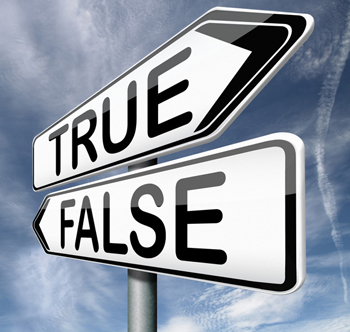By Matthew Continetti • Free Beacon
I used to laugh every time I heard someone like Elon Musk say that we are living in a Matrix-like simulation. These days, not so much.
Don’t call the funny farm just yet. On the major question of the nature of sense experience, I remain with Aristotle and against Bishop Berkeley. Matter is real. But there is also the question of how we perceive “the news”; how established media institutions present and frame information; how we are supposed to respond to the “takes” purportedly expert and knowledgeable voices serve up to us by the second on social media. And here, I’m skeptical.
It’s hard not to be. Think of the headlines we’ve encountered since the beginning of this year. We were told the Covington Catholic boys were smug racist Trump supporters on the basis of a snippet of video. A young man, a private citizen, whose only offense was traveling to Washington, D.C., to march for life, was transformed at light speed into a symbol of hate and systemic oppression. However, just as Nick Sandmann’s reputation as a villain was about to set in stone, additional videos revealed that the students’ encounter with a far-left American Indian activist and the Black Hebrew Israelites was far more complicated than initially reported. The Covington Catholic boys had been smeared. People who cast themselves as agents of professional knowledge, expertise, and moral authority had circulated and amplified a lie in the service of a political agenda. Not for the first nor last time.
We were told Jussie Smollett, a rising gay African-American actor and singer, had been the victim of a hate crime committed by MAGA-hat-wearing Trump supporters in the dead cold of a Chicago night. Journalists and bloggers who asked questions about Smollett’s story were decried as bigots, even as key details went missing and the shifting timeline became more and more curious. Then the city’s African-American police commissioner announced Smollett had been arrested for orchestrating a bizarre hoax. The state’s attorney filed charges—charges subsequently dropped after behind-the-scenes lobbying by Michelle Obama’s former chief of staff.
We were told that Donald Trump and Vladimir Putin were in cahoots to hack the emails of the Democratic National Committee and the Hillary Clinton campaign; that Trump might have been a Russian agent since the late 1980s; that the key to the conspiracy might be a server in Trump Tower relaying information to a Russian bank; that the indictment of Donald Trump Jr. was imminent; that Trump Sr., according to the former director of the Central Intelligence Agency, had committed “treason”; that Michael Cohen had met with Russian intelligence operatives in Prague; that Trump had directed Michael Flynn to speak to the Russians prior to Election Day 2016; that Trump had instructed Michael Cohen to lie to Congress; that Paul Manafort had met with Julian Assange in the Ecuadoran embassy in London during the campaign; that secret indictments in an Alexandria courthouse would be unsealed on the day Robert Mueller filed his report on possible collusion between the Trump campaign and Russia. None of it happened.
We were told that Michael Avenatti, a trial attorney who appeared seemingly out of nowhere to represent Stephanie Clifford, aka “Stormy Daniels,” in her (tossed-out) defamation suit against Donald Trump, was a defender of the rule of law and election integrity who posed, in the words of Stephen Colbert, an “existential threat” to the Trump presidency. Avenatti appeared incessantly on cable news, earning the equivalent of $175 million in media exposure between March and May 2018. Last September, an article in Politico Magazine carried the headline, “Michael Avenatti Is Winning the 2020 Democratic Primary.” When Avenatti said he represented a client who had been a victim of gang rapes and druggings at parties attended by Brett Kavanaugh during high school, NBC News interviewed the client despite being unable to verify her (ludicrous) accusation. By last November, when he was arrested for domestic assault in Los Angeles, Avenatti had appeared on television more than 200 times in the space of 8 months.
On the morning I wrote this column a federal grand jury indicted Avenatti on 36 counts, including fraud. “Defendant AVENATTI would embezzle and misappropriate settlement proceeds to which he was not entitled,” reads just one sentence of the mind-boggling 61-page indictment. What media authorities had presented as true—that Avenatti was a serious attorney whose evidence would destroy the Trump presidency—has been revealed, once again, as utterly fallacious, a con. It’s up to the jury to decide if Michael Avenatti is a criminal. What’s beyond dispute, has been for a while, is that he is an unserious person, out for attention, celebrity, the notoriety and status fame brings. In the months of his ascendance, however, cable anchors and journalists did their best to avoid or downplay the truth of Avenatti’s character, lest it distract from their attack on the president’s.
As the influence of establishment media outlets has waned, their attempts to control the narrative have intensified. The cable networks and major print outlets have become more politicized, not less, as social media and streaming video make it much easier to expose hoaxes and puncture holes in the received wisdom. The Sentinels who protect the liberal media matrix are vigilant against thoughtcrime, they anathematize dissent, but they are less interested in the canons of professional journalism, such as presenting both sides of a story and refraining from baseless speculation. Right now they are heralding Ilhan Omar for her courage, turning Alexandria Ocasio-Cortez into the flag-bearer of the Democratic Party, and confident that no matter the opposition Trump will be defeated. Best be skeptical. As with all the other bogus stories, reality will make itself felt in the end. It always does.

